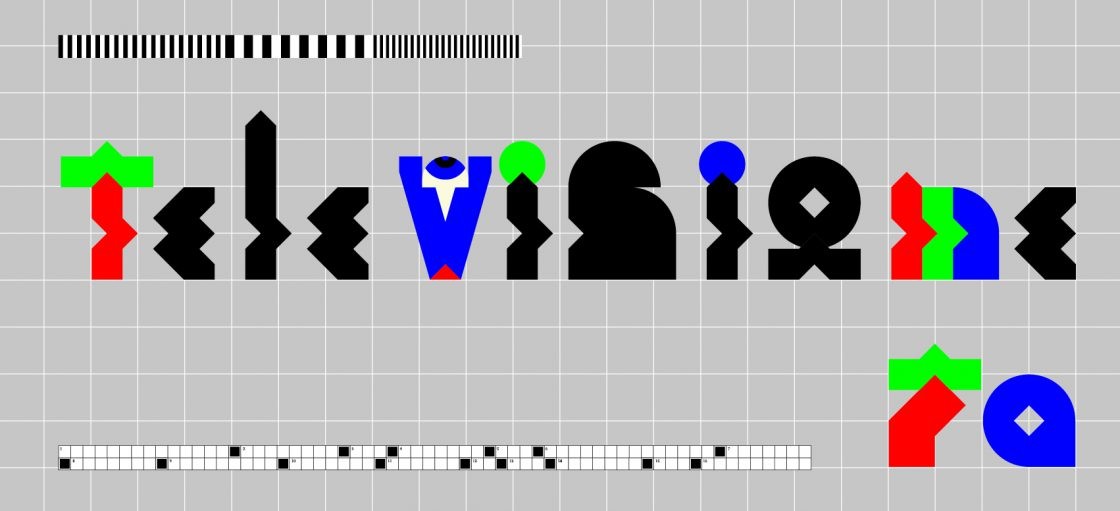TV 70: Francesco Vezzoli guarda la Rai
09 May - 24 Sep 2017
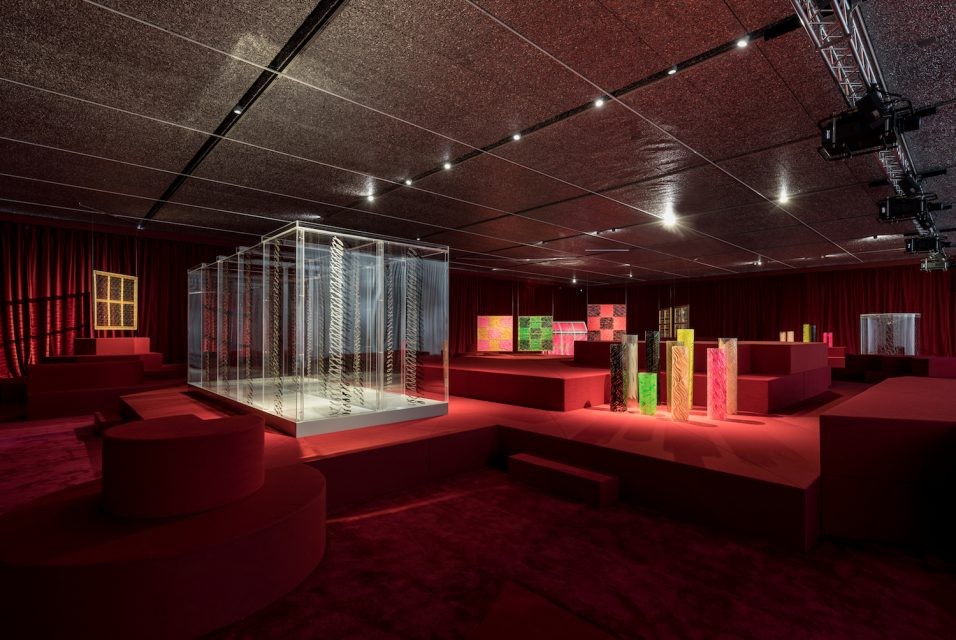
View of the exhibition “TV 70: Francesco Vezzoli guarda la Rai”. Photo Delfino Sisto Legnani e Marco Cappelletti.
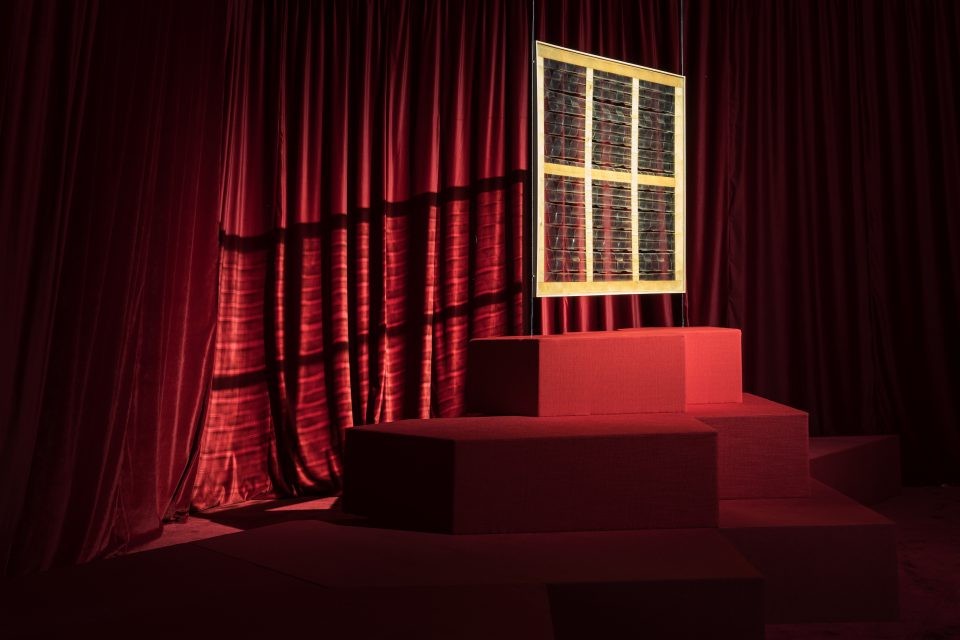
View of the exhibition “TV 70: Francesco Vezzoli guarda la Rai”. Carla Accardi, Grande trasparente,1975. Photo Delfino Sisto Legnani e Marco Cappelletti.
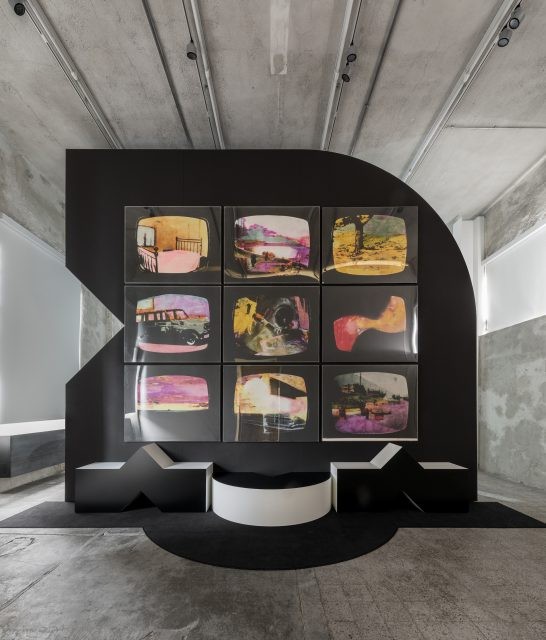
View of the exhibition “TV 70: Francesco Vezzoli guarda la Rai”. Mario Schifano, Paesaggio TV, 1970. Photo Delfino Sisto Legnani e Marco Cappelletti.
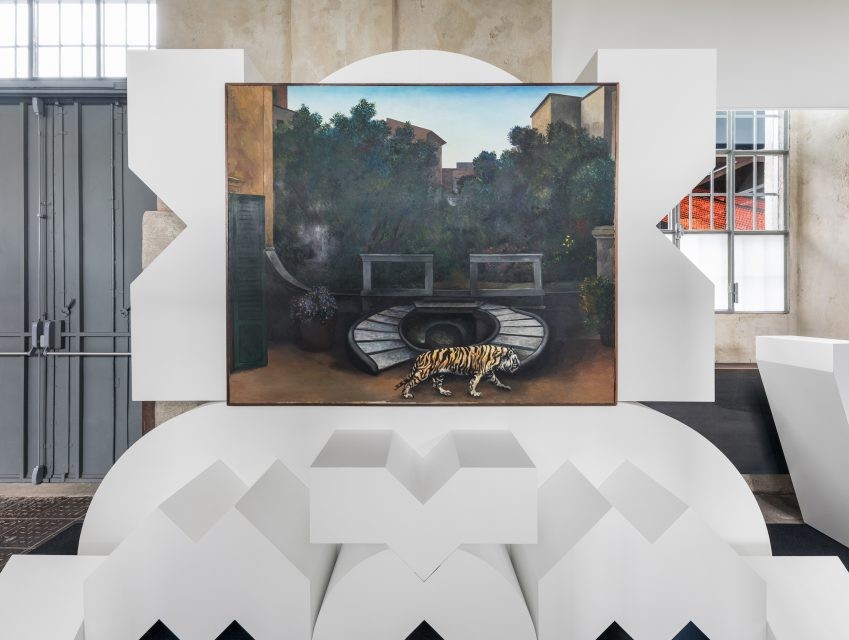
View of the exhibition “TV 70: Francesco Vezzoli guarda la Rai". Renato Guttuso, La visita della sera, 1980. Photo Delfino Sisto Legnani e Marco Cappelletti.
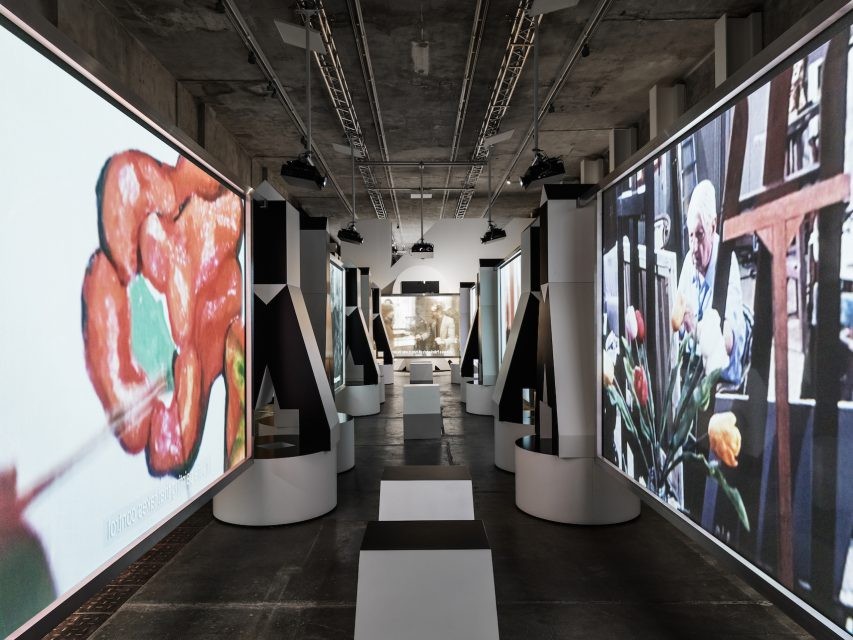
View of the exhibition “TV 70: Francesco Vezzoli guarda la Rai”. Photo Delfino Sisto Legnani e Marco Cappelletti.
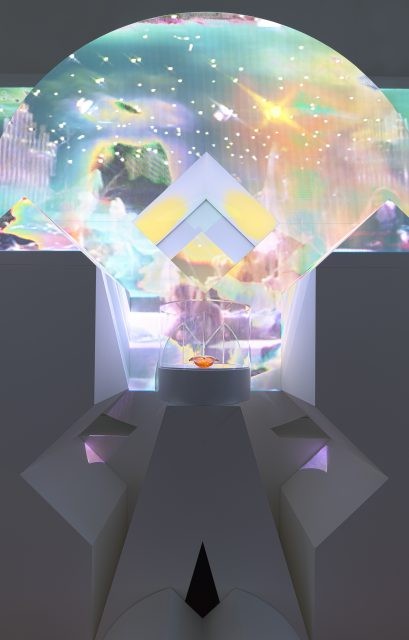
View of the exhibition “TV 70: Francesco Vezzoli guarda la Rai”. Photo Delfino Sisto Legnani e Marco Cappelletti.
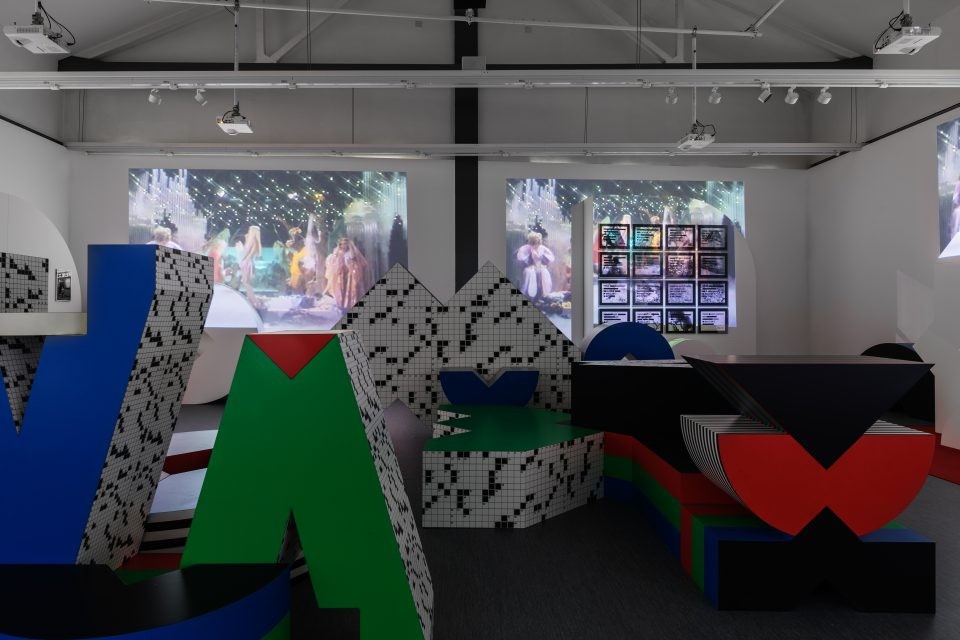
View of the exhibition “TV 70: Francesco Vezzoli guarda la Rai”. Photo Delfino Sisto Legnani e Marco Cappelletti.
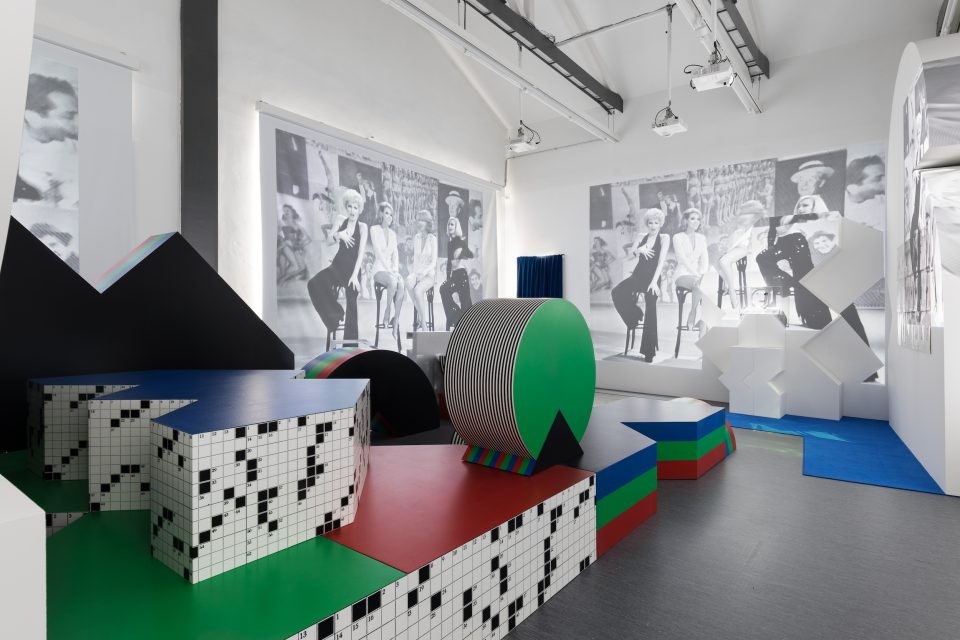
View of the exhibition “TV 70: Francesco Vezzoli guarda la Rai”. Photo Delfino Sisto Legnani e Marco Cappelletti.
TV 70: FRANCESCO VEZZOLI GUARDA LA RAI
9 May – 24 September 2017
“TV 70: Francesco Vezzoli guarda la Rai” is a project by artist Francesco Vezzoli developed in collaboration with Rai, Italy’s national broadcasting company.
In between individual experiences and collective narratives, the exhibition translates the artist’s gaze into a visual experience that explores 1970s TV production. Italian public TV is interpreted by the artist as a driving force for social and political change in a country in transition from the radicalness of the 1960s to the hedonism of the 1980s, as well as a powerful machine for cultural and identity creation. During that decade, Rai revised its pedagogical mission and distinguished itself for the high cultural quality of its productions, such as the collaborations with film directors Bernardo Bertolucci, Federico Fellini, Paolo and Vittorio Taviani. Divided between formal austerity and experimental vocation, 1970s television amplified the development of collective imagination into a plurality of landscapes and individual perspectives, anticipating the narratives which characterized the commercial television of the following decade. TV became a specific medium, and its shows went through a progressive transformation: they first shifted from culture to information, and subsequently from information to communication.
As stated by Francesco Vezzoli: “With this project, I wanted to set a path that was risky and dense—one as difficult as the subject requires—but also entertaining and surreal. A true investigation of this contemporary custom and its roots, informed by today’s critical sensibilities: 1970s Italian television produced rituals and, as a consequence, absolute, long-lasting myths that still today, presented anew in this exhibition, can inspire us to make unconventional choices”.
“TV 70”, realized with the curatorial support of Cristiana Perrella, has been conceived as a sequence of visual and semantic juxtapositions taking place in the Nord gallery, in the Podium and in the Sud gallery at Fondazione Prada. The design of the show, realized by M/M (Paris) – Mathias Augustyniak and Michael Amzalag – is based on the merging of spatial and temporal dimensions in a set-up which combines traditional museum exhibition standards with the screening of moving images, in alternating conditions of light and darkness. The sequence of immaterial documents from the Teche Rai archives combined with the materiality of paintings, sculptures and installations – selected thanks to the scientific consultancy of Massimo Bernardini and Marco Senaldi – will develop in three separate sections, and analyze the relationships between Italian public television with visual art, politics and entertainment.
“TV 70” will come to an end at the Fondazione’s Cinema with the screening of a new work by Francesco Vezzoli “Trilogia della Rai” (2017), a selection of TV excerpts edited by the artist. By including the icons that marked his childhood and adolescence within the TV flow featuring different genres and styles, the artist will transform archive footage into a living substance, and his personal, intimate memory into a shared narration. Vezzoli combines in an intense collection the traces of contradictions and aspirations of a country mirrored in its media production. The Cinema will also host Gianni Pettena’s installation “Applausi” (1968), an ironic invitation for visitors simultaneously experiencing the double and ambiguous condition of television and exhibition audiences.
During the course of the exhibition Fondazione Prada will organize a series of marathons of the most significant Rai shows that experimented with TV storytelling: from documentary to women variety shows, from TV series to avant-garde theater. Contemporary audiences will be able to test how the innovative concepts, along with entertainment and research skills behind some of the shows produced by Rai, are still relevant after forty years and capable of producing an inspiring dialectic between past and present times.
The exhibition “TV 70: Francesco Vezzoli guarda la Rai” will be completed by an illustrated publication edited by Fondazione Prada that will include essays by international art critics and theorists, scholars and television professionals (Maria Pia Ammirati, Lucia Annunziata, Massimo Bernardini, Klaus Biesenbach, Nicolas Bourriaud, Simon Castets, Germano Celant, Carolyn Christov-Bakargiev, Nicholas Cullinan, Carlo Freccero, Flavia Frigeri, Lauren Mackler, Hans Ulrich Obrist, Cecilia Penati, Raffaella Perna, Cristiana Perrella, Letizia Ragaglia, Marco Senaldi, Lynn B. Spiegel, Linda Yablonsky), addressing the themes highlighted in the exhibition project.
9 May – 24 September 2017
“TV 70: Francesco Vezzoli guarda la Rai” is a project by artist Francesco Vezzoli developed in collaboration with Rai, Italy’s national broadcasting company.
In between individual experiences and collective narratives, the exhibition translates the artist’s gaze into a visual experience that explores 1970s TV production. Italian public TV is interpreted by the artist as a driving force for social and political change in a country in transition from the radicalness of the 1960s to the hedonism of the 1980s, as well as a powerful machine for cultural and identity creation. During that decade, Rai revised its pedagogical mission and distinguished itself for the high cultural quality of its productions, such as the collaborations with film directors Bernardo Bertolucci, Federico Fellini, Paolo and Vittorio Taviani. Divided between formal austerity and experimental vocation, 1970s television amplified the development of collective imagination into a plurality of landscapes and individual perspectives, anticipating the narratives which characterized the commercial television of the following decade. TV became a specific medium, and its shows went through a progressive transformation: they first shifted from culture to information, and subsequently from information to communication.
As stated by Francesco Vezzoli: “With this project, I wanted to set a path that was risky and dense—one as difficult as the subject requires—but also entertaining and surreal. A true investigation of this contemporary custom and its roots, informed by today’s critical sensibilities: 1970s Italian television produced rituals and, as a consequence, absolute, long-lasting myths that still today, presented anew in this exhibition, can inspire us to make unconventional choices”.
“TV 70”, realized with the curatorial support of Cristiana Perrella, has been conceived as a sequence of visual and semantic juxtapositions taking place in the Nord gallery, in the Podium and in the Sud gallery at Fondazione Prada. The design of the show, realized by M/M (Paris) – Mathias Augustyniak and Michael Amzalag – is based on the merging of spatial and temporal dimensions in a set-up which combines traditional museum exhibition standards with the screening of moving images, in alternating conditions of light and darkness. The sequence of immaterial documents from the Teche Rai archives combined with the materiality of paintings, sculptures and installations – selected thanks to the scientific consultancy of Massimo Bernardini and Marco Senaldi – will develop in three separate sections, and analyze the relationships between Italian public television with visual art, politics and entertainment.
“TV 70” will come to an end at the Fondazione’s Cinema with the screening of a new work by Francesco Vezzoli “Trilogia della Rai” (2017), a selection of TV excerpts edited by the artist. By including the icons that marked his childhood and adolescence within the TV flow featuring different genres and styles, the artist will transform archive footage into a living substance, and his personal, intimate memory into a shared narration. Vezzoli combines in an intense collection the traces of contradictions and aspirations of a country mirrored in its media production. The Cinema will also host Gianni Pettena’s installation “Applausi” (1968), an ironic invitation for visitors simultaneously experiencing the double and ambiguous condition of television and exhibition audiences.
During the course of the exhibition Fondazione Prada will organize a series of marathons of the most significant Rai shows that experimented with TV storytelling: from documentary to women variety shows, from TV series to avant-garde theater. Contemporary audiences will be able to test how the innovative concepts, along with entertainment and research skills behind some of the shows produced by Rai, are still relevant after forty years and capable of producing an inspiring dialectic between past and present times.
The exhibition “TV 70: Francesco Vezzoli guarda la Rai” will be completed by an illustrated publication edited by Fondazione Prada that will include essays by international art critics and theorists, scholars and television professionals (Maria Pia Ammirati, Lucia Annunziata, Massimo Bernardini, Klaus Biesenbach, Nicolas Bourriaud, Simon Castets, Germano Celant, Carolyn Christov-Bakargiev, Nicholas Cullinan, Carlo Freccero, Flavia Frigeri, Lauren Mackler, Hans Ulrich Obrist, Cecilia Penati, Raffaella Perna, Cristiana Perrella, Letizia Ragaglia, Marco Senaldi, Lynn B. Spiegel, Linda Yablonsky), addressing the themes highlighted in the exhibition project.

